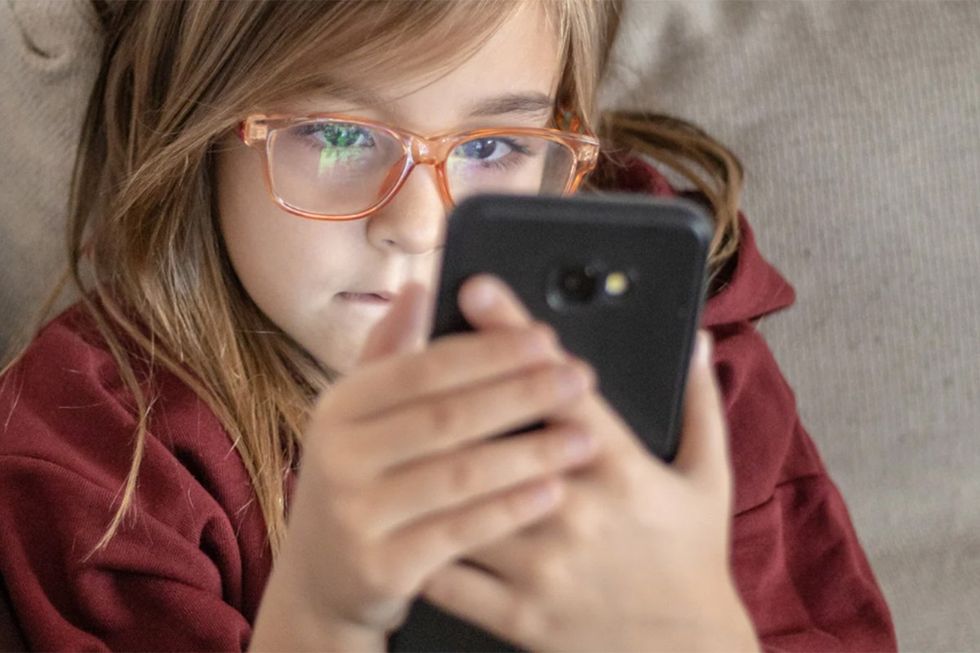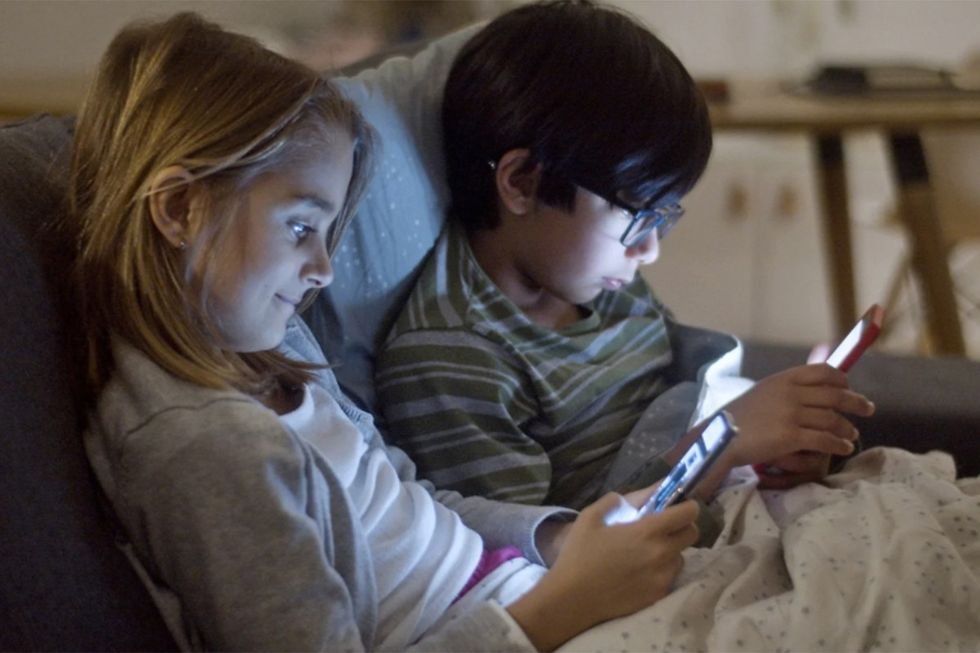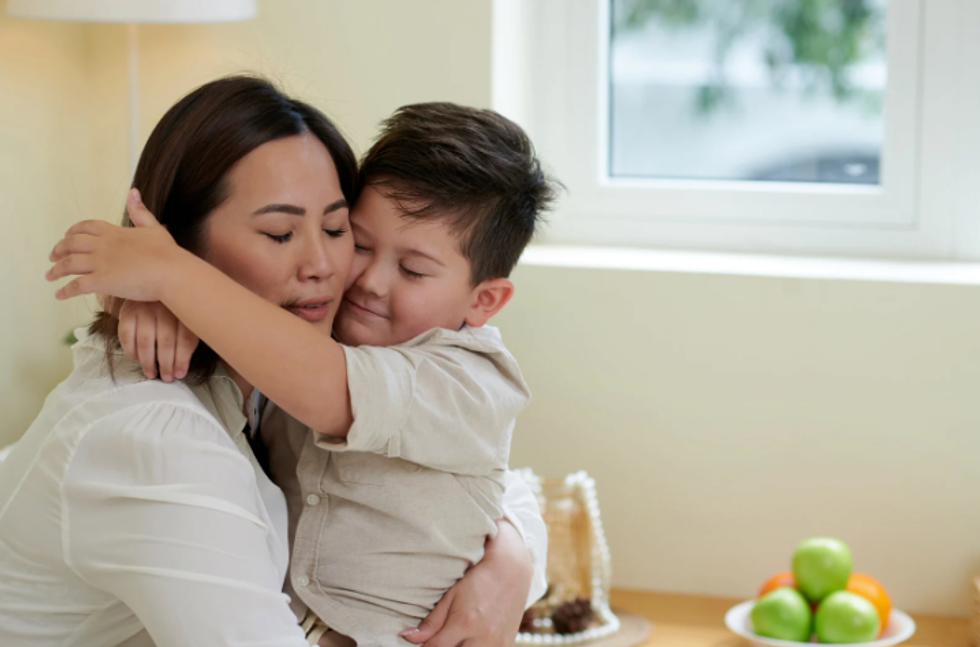Bill Gates sure is strict on how his children use the very technology he helped bring to the masses. In a recent interview with the Mirror, the tech mogul said his children were not allowed to own their own cellphone until the age of 14. “We often set a time after which there is no screen time, and in their case that helps them get to sleep at a reasonable hour," he said.
Gates added that the children are not allowed to have cellphones at the table, but are allowed to use them for homework or studying. The Gates children, now 20, 17 and 14, are all above the minimum age requirement to own a phone, but they are still banned from having any Apple products in the house—thanks to Gates' longtime rivalry with Apple founder Steve Jobs.
Why the Gates’ Rules May Make Sense for Parents Everywhere
While the parenting choice may seem harsh, the Gates may be onto something with delaying childhood smartphone ownership. According to the 2016 “Kids & Tech: The Evolution of Today's Digital Natives" report, the average age that a child gets their first smartphone is now 10.3 years.
 Representative Image: A child glued to their phone.Canva
Representative Image: A child glued to their phone.Canva“I think that age is going to trend even younger, because parents are getting tired of handing their smartphones to their kids," Stacy DeBroff, chief executive of Influence Central, told The New York Times.
James P. Steyer, chief executive of Common Sense Media, a nonprofit organization that reviews content and products for families, additionally told the Times that he too has one strict rule for his children when it comes to cellphones: They get one when they start high school and only when they've proven they have restraint. “No two kids are the same, and there's no magic number," he said. “A kid's age is not as important as his or her own responsibility or maturity level."
Questions to Ask Before Handing Over a Smartphone
PBS Parents also provided a list of questions parents should answer before giving their child their first phone. Check out the entire list below:
- How independent are your kids?
- Do your children "need" to be in touch for safety or social reasons?
- How responsible are they?
- Can they get behind the concept of limits for minutes talked and apps downloaded?
- Can they be trusted not to text during class, disturb others with their conversations, and to use the text, photo, and video functions responsibly (and not to embarrass or harass others)?
- Do they really need a smartphone that is also their music device, a portable movie and game player, and portal to the internet?
- Do they need something that gives their location information to their friends—and maybe some strangers, too—as some of the new apps allow?
- And do you want to add all the expense of new data plans? (Try keeping your temper when they announce that their new smartphone got dropped in the toilet...)
Today's kids and smartphones are inseparable, but that’s not all bad
More kids than ever are getting smartphones early, with the average age for a first phone now around 11–12. By 14, over 90% of U.S. kids have one. Since the pandemic, screen time has also surged — tweens now average 5.5 hours of entertainment media daily, while teens hit 8.5.
 Representative Image: One upside to getting children cellphones is how familiar you will become with what the sides and tops of their heads look lik. Canva
Representative Image: One upside to getting children cellphones is how familiar you will become with what the sides and tops of their heads look lik. CanvaBut experts say it’s not just about how much time kids spend on screens — it’s how they use them. New research, including a Stanford study, found no clear link between age of first phone and long-term well-being. Some 2024 data even shows that kids with phones feel more socially connected.
That said, heavy social media use still raises concerns about anxiety and sleep. Families are responding with more boundaries — limiting screen time, banning phones at night, and delaying ownership through campaigns like “Wait Until 8th.” The shift now is toward building healthy habits, not avoiding tech entirely.
This article originally appeared 6 years ago.
















 For years, the Schoebingers sent Schauna photo books documenting her son’s milestones.Representative photo by Canva
For years, the Schoebingers sent Schauna photo books documenting her son’s milestones.Representative photo by Canva Mom hugging young sonRepresentative photo by Canva
Mom hugging young sonRepresentative photo by Canva Image Source: YouTube I
Image Source: YouTube I  Image Source: YouTube I
Image Source: YouTube I 

 Bruce Willis by Gage Skidmore.
Bruce Willis by Gage Skidmore. bruce willis oscars GIF by The Academy Awards
bruce willis oscars GIF by The Academy Awards



 You can be a part of a group of reading dads, too!Photo credit: @thelibrarydads
You can be a part of a group of reading dads, too!Photo credit: @thelibrarydads

